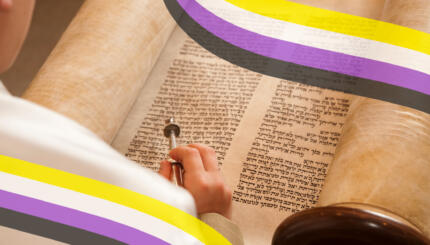Setting limits on the bar/bat mitzvah guest list, necessary in most families, has ethical overtones. The act of sending out invitations for a bar/bat mitzvah defines, if even for one day, who is in a community and who is out. Similarly, it delineates which family members belong and which are estranged. Reprinted with permission from Finding Each Other in Judaism: Meditations on the Rites of Passage from Birth to Immortality (UAHC Press).
The bar/bat mitzvah is the featured celebrant. But the bar/bat mitzvah event is a family affair in which definitions and boundaries are drawn.
The decision as to who will receive the invitation contains a moral agenda of its own. The invitation appears as the local equivalent to the Israeli “Law of Return,” determining who is entitled to unquestioned entry to the Promised Land of our ancestry.
The invitation to the bar/bat mitzvah indicates whom we welcome as members of the mishpacha (family) and whom we exclude. Do we, for example, invite Aunt Rose, who was married to Uncle Abe and who, since his death, has been distanced from the family? Who is to receive which honors at the ceremony, and who is to be seated with whom?
With your help, My Jewish Learning can provide endless opportunities for learning, connection and discovery.
Shall we invite the teacher of the bat mitzvah? What does it mean to the teacher to be so remembered, and what does it mean to the child to remember the teacher?
The bar/bat mitzvah passage often includes a rediscovery of the mishpacha. It entails decisions that bring awareness of the scope and character of our family identity.
mitzvah
Pronounced: MITZ-vuh or meetz-VAH, Origin: Hebrew, commandment, also used to mean good deed.


